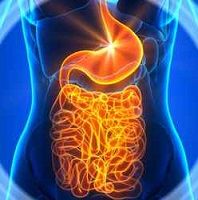Surgical Cure for Gastroparesis
Patients with gastroparesis may be helped with a combination of gastric electrical stimulation and surgery to widen the pylorus, a Texas team reports.

Gastroparesis, a condition in which the stomach cannot empty itself, has been treated by electrical stimulation accompanied by pyloroplasty, surgery to widen the lower part of the stomach.
A Texas Tech University Health Sciences Center, El Paso, TX team reported on the long-term clinical outcomes of these procedures done at their center.
In a study reported as an abstract at the 2015 Digestive Disease Week conference in Washington, DC, Irene Sarosiek , MD, and colleagues followed up with 17 patients. Of the group 14 were women, 9 were Hispanic and their mean age was 43. All had failed drug therapies.
At a mean follow-up period of 14 months, the team found there was no increase in infections related to the procedures, and that of 11 patients who had chronic constipation, 7 no longer had that problem. Two patients said they had developed diarrhea soon after received the gastric electrical stimulation.
The study showed the procedures were generally successful, the team wrote. But they also disclosed that one patient whose results were not included in their study had died of aspiration pneumonia in the post-operative period.
The other patients improved their overall gastroparesis score by a mean value of 71% and the patients who had both procedures regarded their surgeries as successful in controlling their gastroparesis symptoms.
The center is 1 of 6 in the US funded by the National Institute of Health and National Institute of Diabetes and Digestive and Kidney Disease for projects related to gastroparesis, a condition sometimes developed in patients with diabetes. It can also occur after a viral infection.